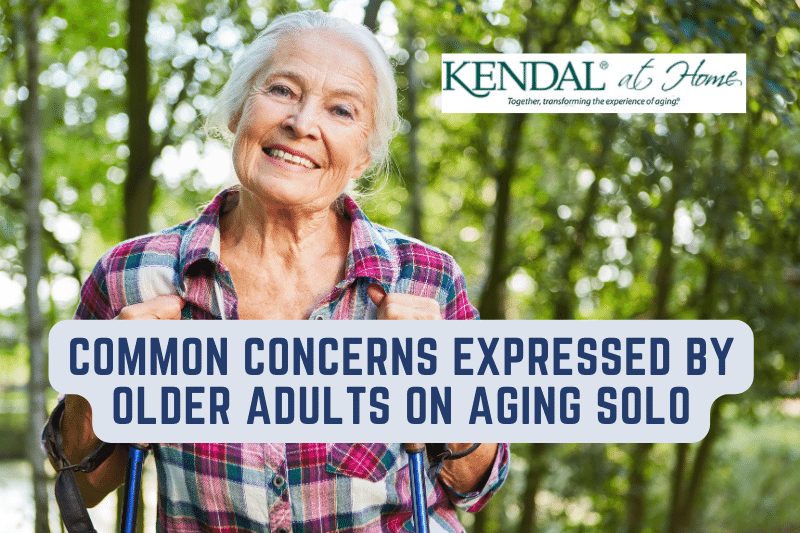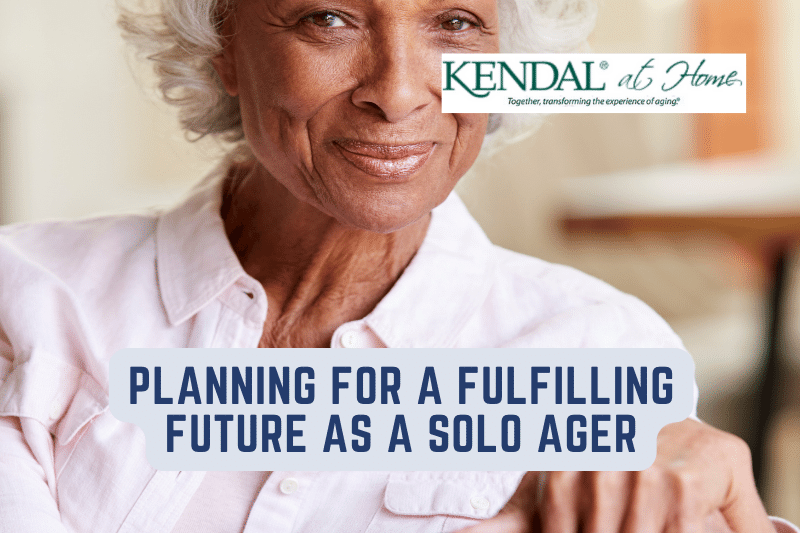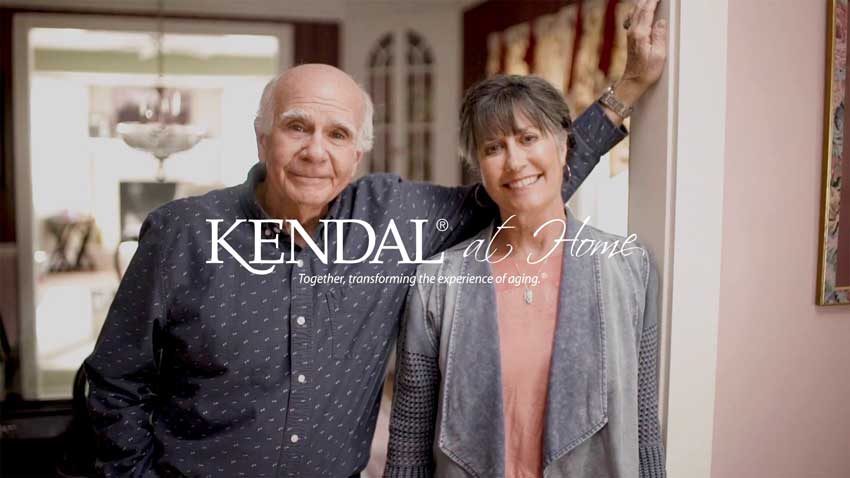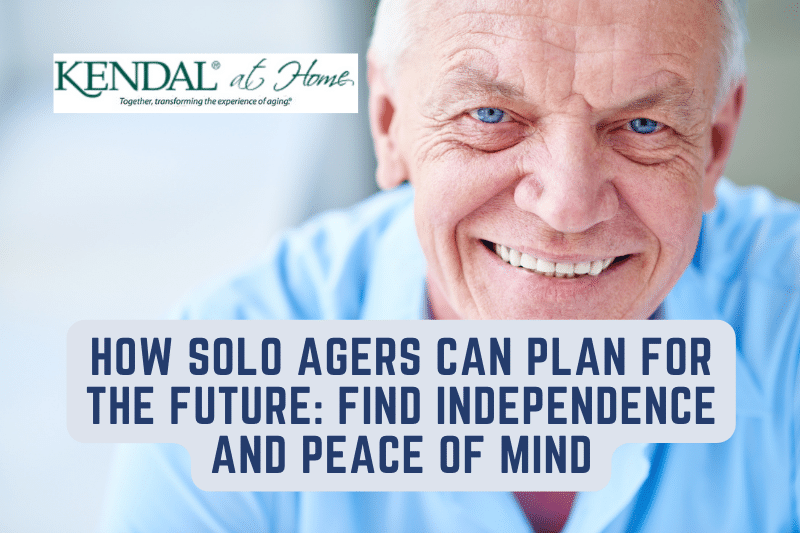According to the U.S. Census Bureau, nearly one-third of all seniors live alone and are aging alone. This population of older adults, as reported by The New York Times [1], represents a growing trend of ‘solo agers’ who are independently living at home without a spouse or children to depend upon for physical, emotional, or practical help.
According to an article in the Washington Post [2], solo agers are a particularly vulnerable demographic. In a survey of 500 people who are aging alone, for example, nearly 70% of them hadn’t identified a friend or family member who could help them if they had health problems, while 35% didn’t have friends or family who could help them with challenges.
Although solo aging is made to appear bleak and lonely, it really isn’t. With the right plan and help, aging alone can be more fulfilling than it is made to appear. Everyone has to plan for the future, whether they’re living alone or not. However, with the current realities as a solo ager, starting now becomes even more crucial.
This article will show you how you can plan to live a life of fulfillment as a senior without needing to rely on family, friends, or relatives.
Common Concerns Expressed by Older Adults on Aging Solo

Many older adults planning to age alone share similar concerns about life in their older years. In other words, many are woefully unprepared and stressed over their current situation and what the future may bring. Below are some of the concerns they express:
- Social Isolation
- Healthcare and Long-Term Care
- Financial Security
- Housing and Living Arrangements
- Estate Planning and End-of-Life Decisions
- Transportation
- Mental and Emotional Well-Being
- Legal Issues
- Safety and Security
- Loss of Independence
- Support System
To address these concerns, many solo agers focus on building strong social networks, seeking community resources and support services, creating comprehensive plans for their future, and proactively addressing legal and financial matters.
The following section will discuss how you can tackle these challenges now that you still have the time.
Planning for a Fulfilling Future as a Solo Ager

Everyone deserves to live a life of stability and independence, and everyone can. Age, gender, or status shouldn’t be—and isn’t—a prerequisite for living the life of your dreams as an older adult. All it takes is a great early plan and the will to see it through. Here’s how to enjoy a peaceful and comfortable life as a solo ager.
1. Prioritize Your Retirement Savings
Financial planning is one of the most important aspects of aging. Most of the decisions you’ll make as a solo boomer depend on how much you’ve saved in your retirement account.
According to a publication by BusinessWire [3], a retired couple will spend up to $300,000 for the remaining years of their life on healthcare and other out-of-pocket expenses, including hiring a home health aide, geriatric care manager, elder law attorney, or aging life care professionals. Solo agers without close relatives have to divide that by two.
2. Plan for Housing and Living Arrangement

Consider your housing options and whether you want to age in place, join an assisted living program, or explore senior housing communities. Where you’ll spend the rest of your happy years matters, and you must ensure your decision matches your interests, care needs, and lifestyle.
Some living arrangements for solo agers may include living in a continuing care retirement community (CCRC), hiring an aging-in-place company, or “adopting a family” that you trust, giving someone in that family your durable power of attorney. If you plan to age in place, you must consider making necessary home modifications to ensure your living environment is safe and accessible.
3. Plan for Healthcare
It is natural that as you grow older, your healthcare needs also grow. Aging well must be accompanied by aging with the right healthcare plan and team by your side. Consider a Life Plan At Home (LPAH) for your healthcare plan, where the aging-in-place company provides support and guidance to enable you to make informed decisions to meet your wellness goals.
You can also consider completing a Medical Order for Life-Sustaining Treatment (MOLST) to make your wishes for medical care known and ensure they’re followed. Average-earning or wealthier boomers may choose health insurance or apply for Medicaid.
4. Plan Ahead for Legal Matters

According to the American Society on Aging, for people in the solo-aging population, it’s a good idea to think about legal guardianship issues or someone who will take over in a fiduciary capacity if they cannot make decisions for themselves. That person may be a relative, a friend, or even a professional fiduciary or private guardian.
Of course, everyone needs the legal protection of a healthcare directive and an estate plan, but solo agers have a heightened need to have those in place while they are still relatively young and healthy.
5. Build a Support Network
A successful solo ager’s plan involves forming and maintaining healthy relationships as you approach an older age. While you may not have close family or extended family members, you can still make healthy connections with people in your community.
One way is building an ADU (Auxillary Dwelling Unit). ADUs are legal in most parts of the country, and solo agers can provide theirs at reduced rent in exchange for household help and companionship to help manage their household or handle day-to-day living needs.
Also, a private Facebook group exists for older orphans [4]. Here is part of the group’s description: “The group is restricted to individuals over age 50 who live without the help of a spouse, partner, and children. If you feel you’re aging alone, with little support, you belong.”
6. Plan for Long-Term Care
Whether you’re aging alone or with family members, planning for the long term is crucial. The American Bar Association [5] discussed the question of paid healthcare surrogates for older adults living alone without family. The Baby Boomer generation, they point out, dropped off their tax information to accountants and used consultants for services.
Some pay to have their groceries delivered, so professional decision-makers may be a natural next step for people without a family caregiver, which may become more available as the demand increases.
Investigate long-term care insurance or other options for covering the costs of potential care services. If you’re choosing a senior living community, you can start researching and visiting senior care facilities to understand your options better.
Working With an Aging-In-Place Agency Aleviates Many of Your Concerns

Working with an aging-in-place agency that focuses on helping you achieve a healthy life plan at home can ease most of your concerns about aging alone. With aging in place, planning for the long-term as a solo ager can translate to a lifetime of peace, independence, and fulfillment.
You can benefit from Kendal at Home’s Life Plan At Home program that focuses on tailored healthy aging planning, guidance, and advocacy from designated care coordinators, 24/7 care coordination accessibility, conscientious management of your healthcare resources, and continuing oversight of any changing needs with the help of a professional geriatrician.
Since opening in 2004, 98% of our members have successfully aged in place without ever needing to go to a nursing home. We make aging in your home possible — and enjoyable — through a combination of a continuum of care and our care coordination team.
Our Care Coordinators work with you to develop a plan that offers support for all stages of life and all levels of care. You’ll receive the safety and security you desire and remain the decision-maker. Your team will be your advocate and liaison in helping you execute your plan, ensuring you thrive at home.
Don’t have kids or a present family? Your children live far away? No problem. Kendal At Home is the family you’ll forever be proud and confident to have. You can register for a free seminar for more information about how our services work.












